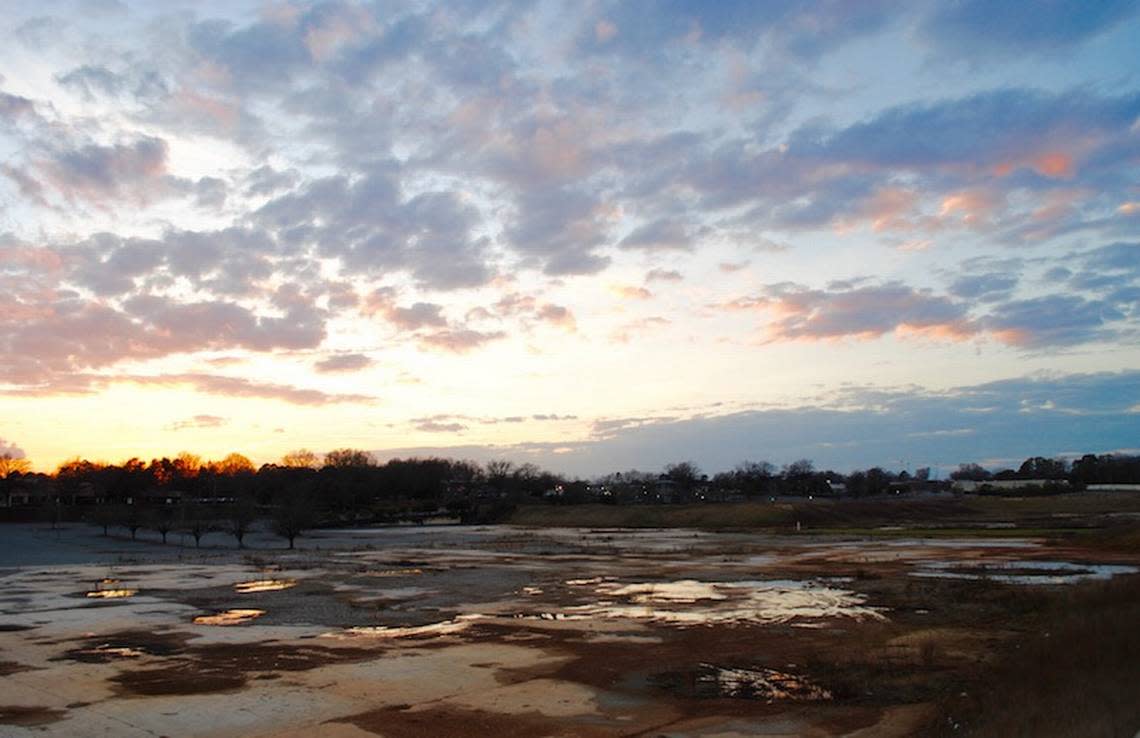Years after buying former Eastland Mall site, city moves redevelopment plan forward

The plan to revitalize the former Eastland Mall site, a project years in the making, took a major step forward Monday night.
The Charlotte City Council voted unanimously to approve a rezoning petition from Crosland Southeast, the developer, and the city, which owns the land.
The plan calls for transforming the vacant land along Central Avenue into a mixed-use hub, with up to 1,050 homes, shops, restaurants, offices, and a 2-acre public park.
The city’s new Major League Soccer team will also build a headquarters and practice facilities on the site, thanks to $110 million in incentives the city has committed to attract the franchise.
The city has said initial site work could start this winter.
But some residents and affordable-housing advocates last month pushed to halt the rezoning petition. They argued the rezoning process, conducted virtually due to COVID-19, lacked transparency and failed to meaningfully engage with the surrounding community.
The city has said that it has worked to make sure it met all requirements for community outreach amid the limits on gatherings. The city hosted a live question-and-answer session as part of the community hearing last month.
Critics have also expressed concerns about the project spurring gentrification in the area and the fate of the open-air market, which operates on the Eastland site.
“Approving this petition does not mean that those discussions will not take place,” said council member Dimple Ajmera.
A plan to revitalize
After struggling in the face of competition from nearby malls such as SouthPark and Northlake, Eastland closed in 2010.
The city bought the mall in 2012 and tore it down. Since then a slew of plans have been proposed for the site — everything from a movie studio to a ski slope. They all fell through. The rezoning approved Monday covers basic land-use and transportation components, but offers few details. The city has said specifics, such as affordable housing, will be addressed in an agreement with the developer, which will also have a public-input process.
City officials have long pitched the project as a catalyst for economic development in east Charlotte. The neighborhoods surrounding the site have fewer jobs per acre than the county average, according to data from the Charlotte/Mecklenburg Quality of Life Explorer.
“We do need to address economic opportunities in east Charlotte,” Ajmera said. “There are so many residents who are having to commute outside of east Charlotte.”
But in a statement, the Housing Justice Coalition, an advocacy group that led the petition to stop the rezoning, said the “high-end development” the council approved will lead to gentrification by increasing rents and property taxes.
“This plan contradicts the City’s own commitments to racial justice and equity that they claimed to care about last week especially when this project, if carried out as currently planned, will displace hundreds of black and brown residents of East Charlotte,” the coalition said.

